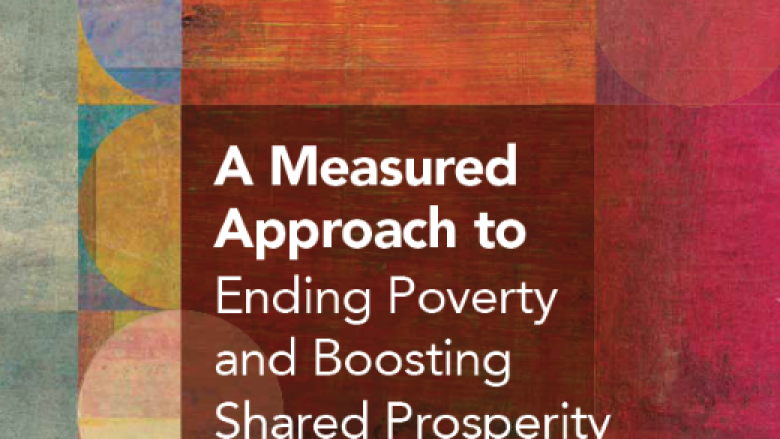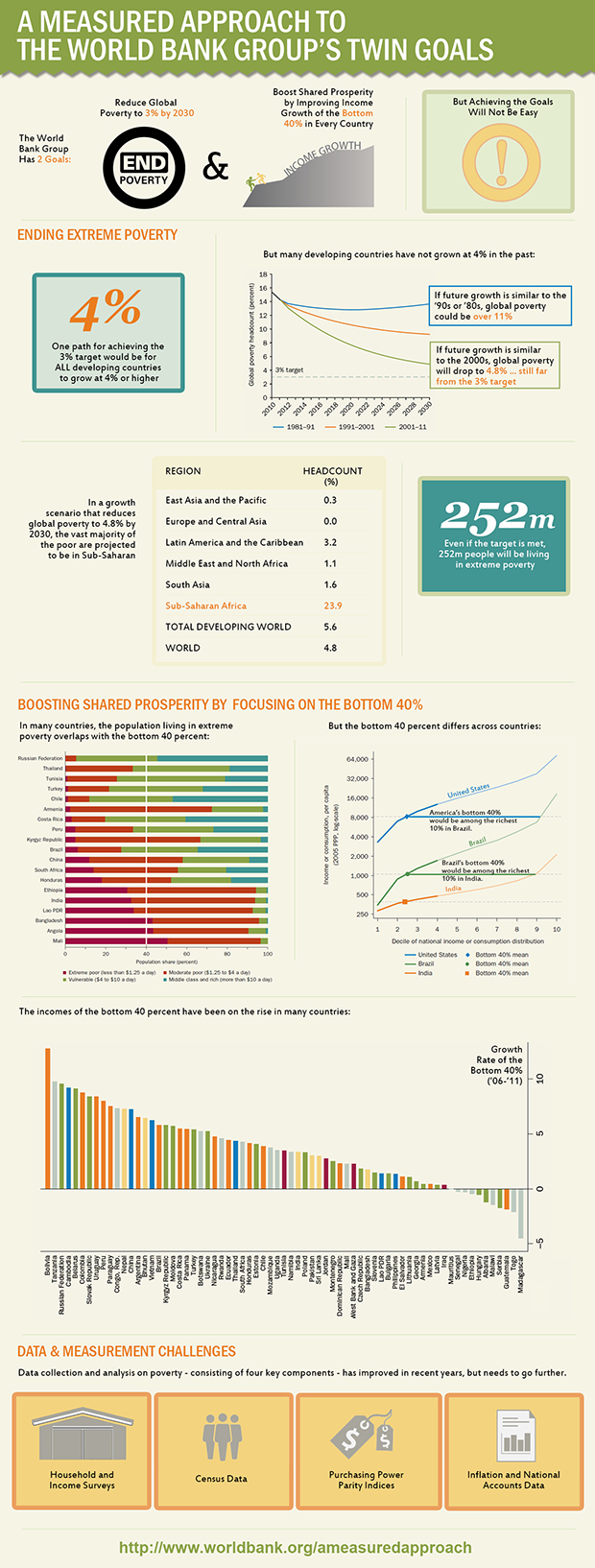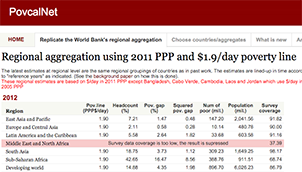The report also highlights the importance of complementary data including population census data, national income accounts data for growth rates, consumer price indices to account for inflation, and purchasing power parity indices, which are used to make cross-country comparisons. However, the report’s authors stress that the data needs of national statistical agencies should not take a back seat to the data demands of international organizations. The need for greater support to national statistical agencies is particularly stark in Sub-Saharan Africa, where the gap between household surveys averages around 5 years.
Ending Extreme Poverty: An Ambitious Goal in Need of Transformational Policies
In the past few decades, substantial progress has been made in reducing global poverty. Between 1990 and 2011, the number of people living in extreme poverty has halved, to around one billion people, or 14.5 percent of the world’s population (Table 1.1).
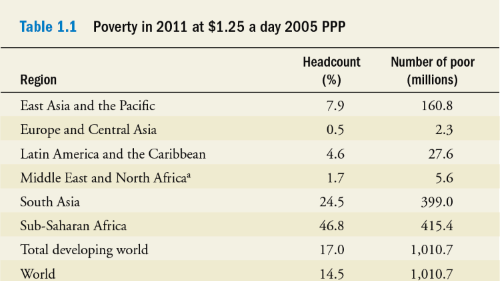
According to the report, the goal of reducing the percentage of the world’s population living beneath this threshold to 3 percent is achievable, but highly aspirational. Simulations that assume both an unchanged income distribution and per capita annual growth of 4 percent in each developing country—roughly equivalent to the average for developing countries as a whole from 2000 to 2010—would achieve the goal (Table 1.2).
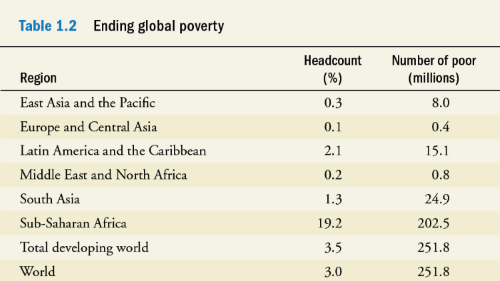
But assuming all developing countries will grow at this rate is highly optimistic. In the past three decades, such growth rates have been far from common. Moreover, since the Bank estimates that more than two-thirds of the world’s extreme poor lived in just eight countries in 2011, a growth slowdown in even a single one of those countries could have a significant impact on the global poverty headcount. Other elements of uncertainty include exceptional economic and financial crises, fragility, political instability, conflict, climate change, and global epidemics. Therefore, the report calls for concerted action and transformational policies that go well beyond “business as usual”—including via a focus on boosting shared prosperity.
